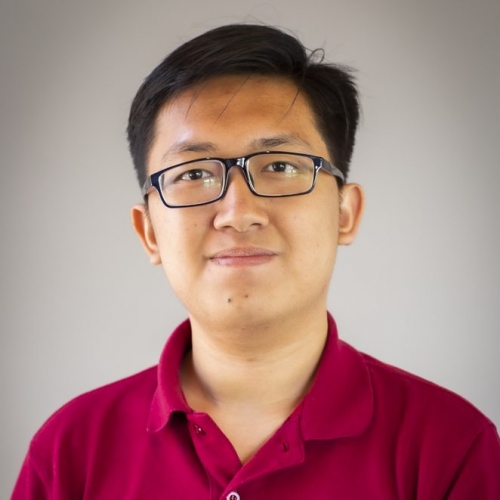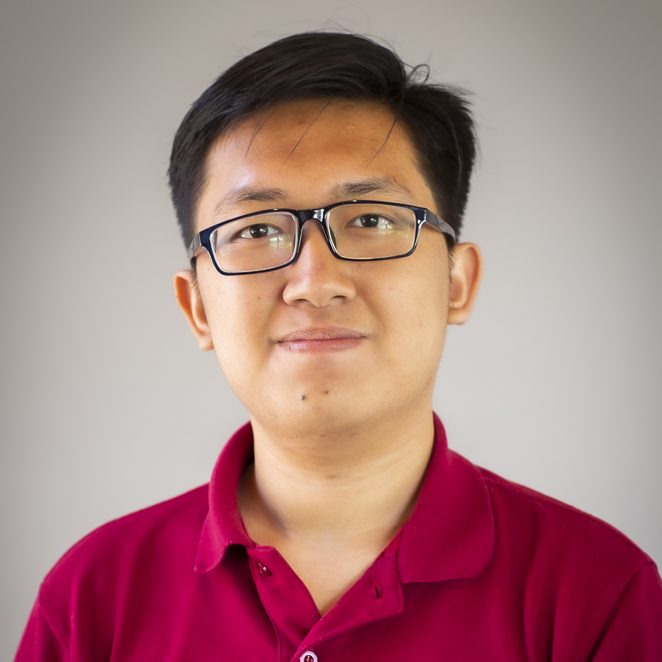
Albert Christian Soewongsono
University of Tasmania
I am currently a third year PhD student at the University of Tasmania. Previously, I completed my undergraduate degree in Mathematics from the University of Nusa Cendana with a thesis in point-set topology, then later I completed my master’s degree, also, in mathematics at the Australian National University with a thesis in population genetics.
I am currently working on a topic in comparative studies of traits correlation in species phylogeny. My previous works during my PhD include analysing tree balance for phylogenies that follow phase-type distributed waiting times and developing phylogenetic model using Quasi Birth-Death (QBD) process. My PhD project is supervised by Prof. Barbara Holland and A/Prof. Małgorzata O’Reilly.
My previous works were published and can be found here:
https://arxiv.org/pdf/2110.03907.pdf
https://www.sciencedirect.com/science/article/pii/S0040580919301741
Can you give me a quick overview of the type of mathematics you are studying and its potential applications or outcomes
My research focusses on constructing mathematical models to study evolutionary processes, particularly on species level by looking at their phylogenetic trees. Understanding macroevolutionary processes such as speciation and extinction can indicate the underlying factors behind the present species diversity we see. Such factors include how each species are related and how their diversification changes through time. In the absence of fossil records, mathematical models can be used to understand such processes. Currently, we are working on comparative studies for species traits correlation based on phylogeny that follows our evolutionary model.
How did you get into bioinformatics?
My high school teacher inspired me to study mathematics in my undergraduate degree. As an undergraduate student, I learnt many things about mathematics and its application across different fields, thus encouraging myself to study more about mathematics by enrolling for masters degree in Australia. During this period, I became interested with bioinformatics after taking two subjects in this field and in the end, I completed my masters thesis in population genetics. With a recommendation from my masters supervisor, I was admitted for a PhD at the University of Tasmania to do research in the applications of mathematics in phylogenetics
What advice would you give to your younger self or others wanting to studying the mathematical sciences?
I would say to my younger self to explore more stuffs in mathematics independently. It is fascinating to see how mathematics is used in different areas of science.
What was your motivation for attending AMSI BioInfoSummer?
My main motivation attending the conference is to broaden my knowledge and also to be able to talk about my research topic. This is my third time joining the conference, so I am already aware of it but the first time I knew about it was from AMSI website and flyer at university.
I would recommend this conference to anyone interested in bioinformatics or just curious about the field. The conference is very well-packed and delivers hands-on workshops.
You received an AMSI BioInfoSummer registration scholarship to attend AMSI BioInfoSummer. How important was this in terms of your ability to attend and fully participate in the sessions throughout the week?
I deeply appreciate for the scholarship as it fully enabled me to attend the conference and its sessions.
What was your main take away from AMSI BioInfoSummer?
I really enjoyed the workshops held throughout the week. Although they were conducted virtually, I think the organising committees really did a great job in making sure we can experience the workshops fully and leaned new things.
Where do you want the mathematical sciences to take you? Where do you see yourself in five or ten years’ time?
I project my future self to have a career in academia with a position as a lecturer and researcher in the area of my study. But before that, I will need to equip myself with enough knowledge, which includes completing my current studies and also a post-doctoral position.

